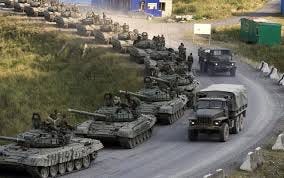Anton’s Story—Part I: The Night Shift That Never Ended
Written by Val Stutz, edited by: Clary Estes. Our conversation with Anton was organized and moderated by our citizen journalist Eugene. Quotes have been edited for clarity and concision.
“Go on, brother!” Eugene begins, “Tell us a little about yourself, where do you live? How did you end up [in Chernobyl?] And how did you end up in the active phase of our war?”
Anton answered his friend’s question with an incredible calmness in his voice, recalling every detail from the moment his work shift started.
“I live in Slavutych, a satellite town of the Chernobyl Nuclear Power Plant. The town itself was built after the accident in 1986. I have been working at the power plant since 2014. Now I’m the head of the Central Committee [of the power plant staff.]”
Anton continued, sharing some details of what he was doing in the final moment leading up to the invasion, as well as how he ended up working a shift at the moment the Russians attacked.
“When the war started I was working as a shift supervisor. I ended up working on February 24th. This was completely random. At the time, I was finishing up the final steps for a promotion to a head of committee position, which has a completely different work schedule. My schedule typically ran from 5:00 am to 2:00 pm, Monday through Friday. One of the other shift supervisors also had to leave for training that week and he asked if I could cover his shift. I said, yes. Covering my co-worker’s shift, as well as finishing up the hours for my previous position caused my hours to end up being different from what they normally were. On February 23rd and 24th, I had to work the last night shifts, as well as over the weekend. News sources began reporting that war was very likely to begin. Of course, I didn’t believe it. I just thought Russian was trying to scare us, and that I planned to finish my training for my promotion without any thought to what might happen.”
Even though he was skeptical of an all-out invasion, Anton still thought he should prepare in case something did happen, so he decided to stock up on essential supplies.
“Before the start of the shift, I drove to a nearby gas station, which turned out to be packed with cars. I wanted to withdraw cash because I only had debit and credit cards, but I didn’t have time. I had to get to work. I was already late. I also managed to buy some food to stock at home, and my wife asked me to buy other essential products.”
It was then that we found out about Anton’s family life. “I would like to add that Anton has two children,” Eugene said.
“That’s right, I’m married,” Anton replied. “I have two children, the younger one is half-a-year old at the moment and the older one is six-years old.”
Anton’s work day started off normally. “When I got to work, the shift started off, shall we say, calmly. Our main task was to transfer nuclear fuel rods to another storage area for conservation, from wet to dry storage. I won’t go into further detail with this topic because it’s a complicated technology, but you get the point.”
Anton and his co-worker continued their work as they normally would—until Anton got a call from his supervisor at 5:00 am on the morning of February 24th. “At five in the morning, the head of the power plant called me and said that they were getting news from the Ukrainian–Belarusian border that enemy fighter jets had started to scramble. There were audible explosions from artillery fire, and he said that we should prepare and be ready for anything. Those were the supervisor’s exact words.”
Besides the ominous sounds of explosions near the border with Belarus, Anton and his team were also getting reports of explosions around Kyiv. “Later I got a call from a colleague that there were some kind of explosions near Kyiv. In those early moments, I didn’t have access to any reliable information, it was just hearsay.”
About an hour later, Anton realized that the situation was getting worse. “At 6:00 am, the head of the power plant called again to announce that a state of emergency had been declared. That’s right, it was an emergency situation.”
Up next—Part II: State of Emergency



